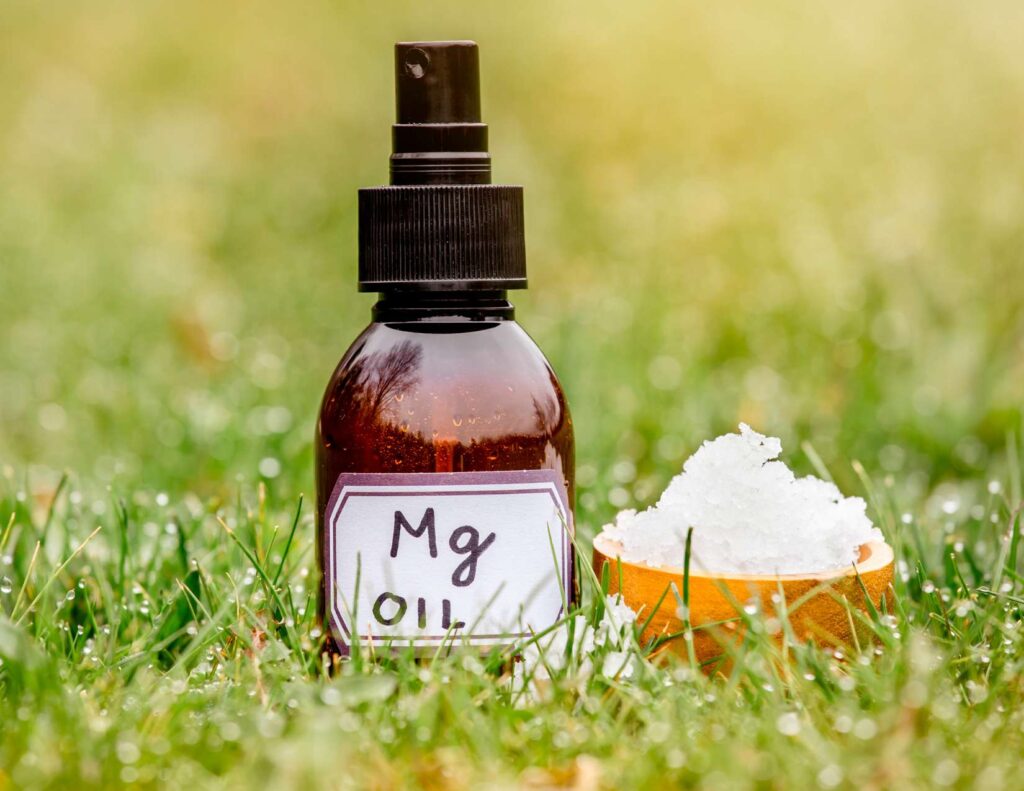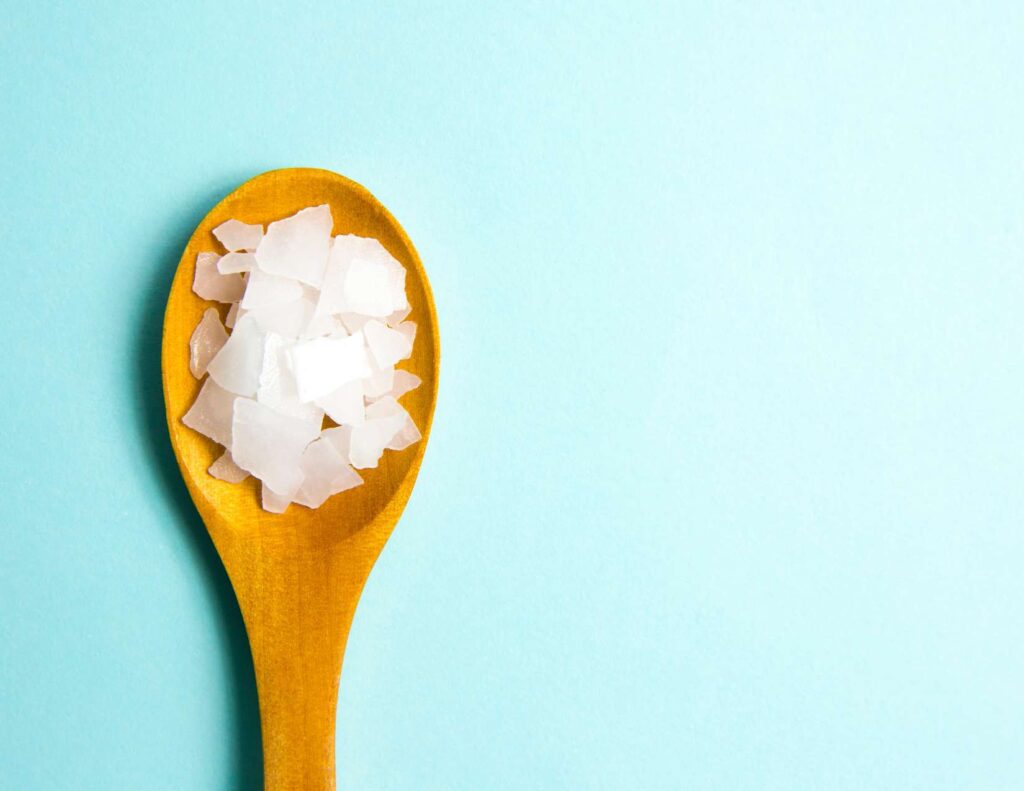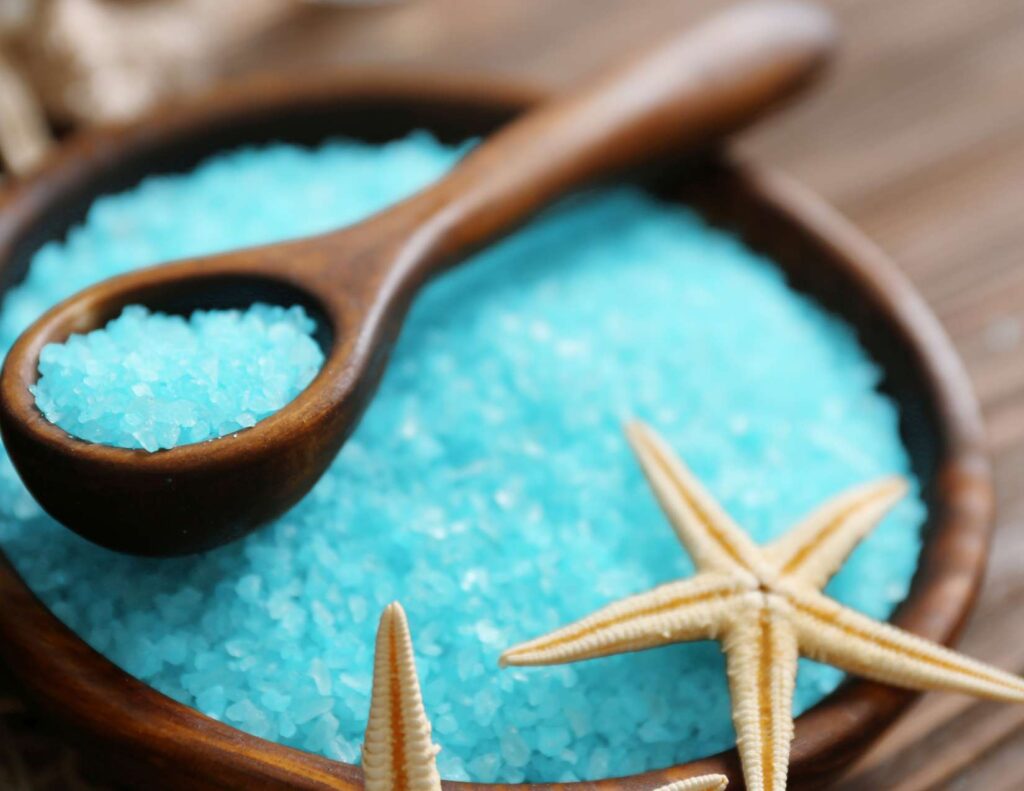Magnesium Flakes Vs Epsom Salt: Which One is the Best?
Often in our quest for wellness and optimal health, we come across numerous natural remedies. Two such remedies, frequently compared, are magnesium flakes and Epsom salt.
In this comprehensive exploration, we will dive deeper into these therapeutic agents, their key difference while also illuminating the truth about magnesium flakes vs Epsom salt for optimal health.
Table of Contents
What is magnesium?
Magnesium is an essential mineral that plays an important role in over 300 biochemical reactions in the body. It helps to maintain muscle and nerve function, heart health, regulation of blood sugar levels and boosts bone strength.
It’s common to be magnesium deficient due to factors such as diet, stress and poor absorption. It’s also known to be one of the most common mineral deficiencies!
In order to receive all these benefits from magnesium, it is important to make sure your diet contains enough of this macronutrient.
Foods like dark leafy greens, nuts and seeds are some of the best sources for optimal magnesium intake. People can also take oral supplements as a way to increase their magnesium consumption.
A better option for the best magnesium absorption is through a topical delivery method, such as through the use of magnesium flakes vs Epsom salt. This is due to the fact that it bypasses the digestive system and goes right into your bloodstream for maximum benefit.

Introduction to Magnesium Flakes and Epsom Salt
Before diving into the comparison of magnesium flakes vs Epsom salt, let’s familiarize ourselves with these two natural remedies. Magnesium flakes, also known as magnesium chloride flakes, are a type of salt derived from seawater.
On the other hand, Epsom salt or magnesium sulfate is a mineral compound traditionally sourced from the springs in Epsom, England. Both have been explored for their health benefits, especially in promoting relaxation and alleviating muscular discomfort.
While these compounds sound similar, they are chemically distinct and offer different advantages. Understanding their individual characteristics can help us make informed decisions about their use for our wellness regimen.
The Importance of Magnesium and Sulfate for Health
Magnesium and sulfate, the key components in magnesium flakes and Epsom salt respectively, play crucial roles in our health. Magnesium, required by every cell in our body, is involved in over 300 biochemical reactions.
It helps maintain normal nerve and muscle function, supports a healthy immune system, keeps the heartbeat steady, and aids in bone health.
Sulfate, on the other hand, aids in detoxification, helps in the formation of brain tissue, joint proteins and the mucin proteins that line the walls of the digestive tract. It also stimulates the pancreas to generate digestive enzymes and helps to digest fats.
In essence, both magnesium and sulfate are vital for our well-being, and their topical application through magnesium flakes or Epsom salt can offer numerous benefits.
What are Magnesium Flakes?
Magnesium flakes are a form of magnesium chloride, a naturally occurring mineral compound. These flakes are highly absorbable and can be dissolved in water to create a solution known as magnesium oil. Despite its name, this mixture isn’t oily but feels slippery to the touch.
Magnesium flakes are commonly used in a baths, foot soaks, and massages to deliver magnesium directly to the cells via the skin, a process known as transdermal absorption. This method bypasses the digestive system, making it a popular option for those who struggle with oral magnesium supplements.

What is Epsom Salt?
Epsom salt, scientifically known as magnesium sulfate, is a naturally occurring mineral compound. Named after the town of Epsom in Surrey, England, where it was first discovered, Epsom salt is renowned for its plethora of health benefits.
Like magnesium flakes, Epsom salt is often used in Epsom salt baths and foot baths. The heat of the water aids in the dissolution of the salt, allowing the skin to absorb the magnesium and sulfate. This can provide relief from muscle soreness, stress, and even skin conditions.
Comparing Magnesium Flakes vs Epsom Salt
In the debate of magnesium flakes vs Epsom salt, it’s important to note that both are beneficial especially when you use magnesium for sciatica. Their usage largely depends on individual health requirements and preferences.
Magnesium flakes, being a more concentrated form of magnesium, can be more beneficial for those with severe magnesium deficiency. They are also less likely to cause skin dryness compared to Epsom salt.
On the other hand, Epsom salt, with its high sulfate content, may be more suitable for those seeking detoxification benefits. It’s also a more economical option and can be easily found in most grocery and drug stores.
The Benefits of Magnesium Flakes
Magnesium flakes offer a variety of health benefits. They promote relaxation, reduce stress and anxiety, and aid in sleep. The high magnesium content can relieve muscle aches and spasms, reduce inflammation, and improve skin conditions like eczema and psoriasis.
Moreover, research suggests that transdermal magnesium can be a great way regulate blood sugar levels, reduce high blood pressure, and support heart health.
The Benefits of Epsom Salt
Epsom salt, too, offers numerous benefits. It can relax the body, relieve muscle pain and muscle cramps, and assist in the elimination of harmful substances. It also aids in the production of serotonin, a mood-elevating chemical within the brain that creates feelings of relaxation and calmness.
Furthermore, Epsom salt is beneficial for the skin, providing exfoliation and combating minor irritations.

Choosing Between Magnesium Flakes and Epsom Salt for Your Health Needs
There are many different forms of magnesium. Choosing between magnesium flakes vs Epsom salt comes down to your specific health needs.
If your primary goal is to replenish magnesium levels, magnesium flakes might be the better choice due to their higher magnesium concentration.
However, if you’re looking for a cost-effective option that provides detoxification benefits and promotes relaxation, Epsom salt could be your go-to.
How to Use Magnesium Flakes and Epsom Salt
In comparing magnesium flakes vs Epsom salt, they both can be used in full body bath soaks, foot soaks, and as massage agents.
To use magnesium bath flakes or Epsom salt, dissolve about two cups of either in warm bath water and soak for at least 15 minutes. For a foot soak, use about half a cup in a basin of warm water. For massage, you can create a paste with a little water and apply it directly to the skin.
Health Benefits of a Magnesium-Enriched Bath
A magnesium salt bath provides many benefits, including aiding in sleep and relaxation. Studies have also found it to be helpful for people suffering from chronic pain, joint pain, sore muscles, muscle cramps, stress, depression, and anxiety.
In addition to being a natural detoxifier, magnesium can improve skin hydration and health by reducing inflammation and calming the nervous system. It is also thought to help with digestion issues such as constipation.
A magnesium-enriched bath can help to alleviate these health issues, providing a natural and effective way to improve your overall health and well-being.

Conclusion: Unveiling the Truth for Optimal Health
In conclusion, both magnesium flakes and Epsom salt are potent natural remedies with a myriad of health benefits.
While they each have their unique advantages, the choice between magnesium flakes vs Epsom salt ultimately depends on your personal health goals.
By understanding their characteristics and benefits, you can make an informed decision that best supports your journey to optimal health.
This evening, it would be a good idea to take a long soak in the bath tub with some essential oils for extra stress relief! Enjoy!







3 Comments
Comments are closed.